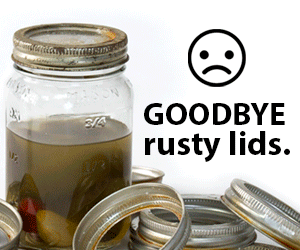As a gardener, you want to protect your plants from pests without causing harm to the environment. There are many effective pest control methods that avoid the use of toxic chemicals. Incorporating eco-friendly solutions into your management plan creates a healthy backyard ecosystem for plants, pollinators, birds, and other wildlife.

Encourage Beneficial Insects
Beneficial predator insects like ladybugs, lacewings, and syrphid flies naturally control pest populations in your garden. Avoid broad-spectrum insecticides so you don’t inadvertently kill them. Plant flowers and herbs that supply nectar or pollen these allies need for food and reproduction. Some great choices are dill, cilantro, fennel, cosmos, alyssum, and flowering buckwheat.
Provide habitat for beneficial species by having a diversity of plant types and allowing leaf litter to accumulate in garden beds. Install artificial nesting boxes for predaceous wasps and other helpful insects. For example, drilled wood blocks attract mason and mud dauber wasps that capture many soft-bodied caterpillars to feed their larva.

Use Physical Barriers
Don’t give pests an easy entry point into garden beds. Spread a layer of organic mulch 2-6 inches thick to block weeds and prevent some insects from laying eggs in the soil. Sticky barrier bands around tree trunks stop crawling bugs like ants and caterpillars. Row covers over vegetable plants create a temporary insect barrier while allowing air, light, and irrigation through. Just be sure to remove row covers when plants start flowering so pollinators can access them.
Put up netting over fruit trees and berry bushes to keep winged pests away. Hardware cloth (a metal screen) wrapped around the base of raised garden beds blocks burrowing animals. Collars placed around seedlings protect them from cutworm damage.
Apply Organic Pesticides Judiciously
When preventative controls fail to keep pests below an acceptable threshold, use organic-approved insecticides derived from plants as a last resort. Products like neem oil, pyrethrins, insecticidal soaps, and spinosad break down quickly in sun and rain, so they must be applied more frequently than synthetic chemicals. But used sparingly, these materials pose very little risk to kids, pets, beneficial species, or overall environmental quality.

Botanical oils smother soft-bodied insects on contact and deter egg-laying. Soap sprays disrupt cell membranes and cause insect dehydration. Products containing Bacillus thuringiensis (Bt) or spinosad produce toxins that specifically target larva of moths, flies, beetles, and other insects during digestion, while having minimal impact on other species. Spot-spray infested areas or isolate treatments to problem plants instead of blanketing everything as a general protective measure.
Implement Companion Planting
Certain plants have natural pest-repelling properties that make them great companions in beds and containers. Pairings may confuse insects through their blend of colors, textures, and scents…or plants provide mutual benefits to deter or withstand pest attacks.
Some well-known plant allies are:
- Chives & carrots – deter carrot fly
- Garlic & roses – repel aphids
- Marigolds & tomatoes – reduce nematodes and beetles
- Basil & peppers – mask scent, block beetle feeding
- Petunias & eggplants – protect from beetles
- Radishes & cucumbers – limit cucumber beetles
- Onions & lettuces – confuse onion flies
- Zinnias attract ladybugs to control aphids
Do some research online or check companion planting guides to discover helpful neighbors for the crops you want to grow. Monitor pest levels closely and rotate companions each season to disrupt cycles.

Apply Organic Pest Control Solutions
- Maintain healthy garden soil by adding aged manure, compost, wood chips, etc. This supports vigorous plant growth and beneficial microbes that protect against some root diseases and nematodes.
- Handpick large pests like tomato hornworms, cabbage loopers, slugs and snails. Drop them into soapy water or feed to backyard chickens!
- Use pheromone traps and indicator plants that lure certain pests away from food crops.
- Practice crop rotation between seasons to disrupt pest life cycles.
- Time plantings appropriately. Avoid putting out seedlings too early when cold temperatures make them vulnerable.
- Rinse aphids and mites away with a strong stream of water.
- Remove diseased plants or prune infected parts before issues spread.
- Tolerate minor cosmetic damage that doesn’t threaten plant health or productivity.
- Check plants frequently to catch issues early and identify whether controls are actually needed.
- Monitor weed growth as these can harbor certain garden pests.
- Clean up crop debris after harvest so it doesn’t shelter overwintering stages.
- Learn to identify beneficial predator species, especially immature stages, so they are not mistaken for pests.
Conclusion
Caring for your garden with a holistic, eco-friendly approach creates a balanced environment. Supporting natural predators keeps pest insects in check more safely than repeated applications of chemical toxins. When integrated together, preventative physical barriers, selective use of organic pest control products, and companion planting gives you multiple lines of defense against garden invaders. Pay attention to plant health and regularly monitor for problems so you catch issues before they get out of control. Be patient and allow nature’s helpers time to work before resorting to other remedies. The small bit of extra effort is worthwhile to grow productive, beautiful gardens sustainably.
















One Response